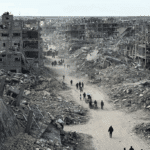
“This meeting is not important to us. We need to hear only results from the trial. This trial has been ongoing for so long. It should end soon so that we can get compensation for the harm we suffered.”
 Perceivably, this attitude arises from the lack of direct involvement in the case as well as the protracted trial process which commenced in July 2011. The legal entitlements encapsulated in the various statutes providing for participation of victims are at risk of being rendered meaningless if these concerns are not addressed.
The fact that victims keep suffering from the conflict’s aftermath (orphans unattended for, physical and mental impairments, etc.) only adds to the risk of diminishing the worth of legal proceedings to their eyes, as they are no longer seen as likely to improve the victims’ current condition. While an important complement to truth seeking and justice efforts, interim measures, projects and interventions by both government and non-government actors have either beeninsufficient or ineffective in meeting the victims’ most basic needs.
Besides, whereas the call for accountability is resounding in many victims’ communities, there concerns towards reparations are also consistently brought up: whowill receive reparation, who will pay them and what form will these reparations take?
Perceivably, this attitude arises from the lack of direct involvement in the case as well as the protracted trial process which commenced in July 2011. The legal entitlements encapsulated in the various statutes providing for participation of victims are at risk of being rendered meaningless if these concerns are not addressed.
The fact that victims keep suffering from the conflict’s aftermath (orphans unattended for, physical and mental impairments, etc.) only adds to the risk of diminishing the worth of legal proceedings to their eyes, as they are no longer seen as likely to improve the victims’ current condition. While an important complement to truth seeking and justice efforts, interim measures, projects and interventions by both government and non-government actors have either beeninsufficient or ineffective in meeting the victims’ most basic needs.
Besides, whereas the call for accountability is resounding in many victims’ communities, there concerns towards reparations are also consistently brought up: whowill receive reparation, who will pay them and what form will these reparations take?
 Beyond legal entitlements, criminal processes can only achieve restorative and healing functions if perceived as meaningful by victims and their communities.In the instant case, this can be done by:
Beyond legal entitlements, criminal processes can only achieve restorative and healing functions if perceived as meaningful by victims and their communities.In the instant case, this can be done by:
- Ensuring constant and meaningful interaction between the victims and their legal counsels, since the latter ensure their participation in the trial.
- Managing victims’ expectations regarding participation in the trial and ensuring that victims understand the scope of their own agency in the justice process before the ICD: this also implies for the ICD and the Government of Uganda to clarify some relevant aspects of victim participation, suchas their right to reparation.
- Promote victims’ agency in exercising their participation rights: proposed efforts include physical attendance of the trial to follow court proceedings by victims through representatives.
- Better target interim support to victims: pending completion of the trial, there is a need for meaningful, effective and holistic interim efforts to support the victims where it matters the mostto them. ASF continues to advocate for the adoption of the draft Transitional Justice Policy in this regard.



